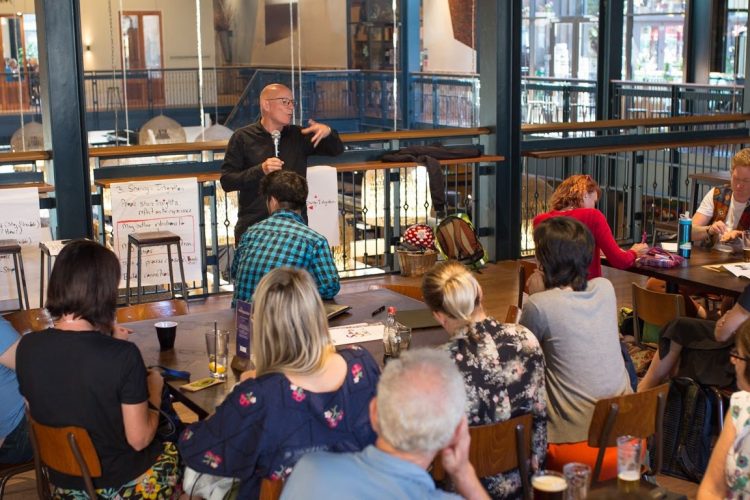
February 1st, 2021
A few thoughts on New Year resolutions
During the summer break I completed the Clifton Strengths assessment which gives feedback on 34 personal “strengths” that cluster into four “themes” called Executing, Influencing, Relationship Building and Strategic Thinking. I was not surprised to find that most of my strengths were in the area of Strategic Thinking and that I had rated some of the more pragmatic strengths of Executing much less highly. Gallup emphasise the uniqueness of everyone’s strengths and suggested that the odds of someone having the same top 5 strengths in the same order as mine was 1 in 33 million.
Gallup have found that people who focus on applying their strengths in life and work are “three times more likely to report having an excellent quality of life” and are “six times more likely to be engaged in their jobs”. Marcus Buckingham and Ashley Goodall in their recent book Nine Lies About Work, add support to these findings. Their research suggests that the opportunity to use our strengths at work is a key driver of high performing teams and dramatically reduces the risks of burnout in high stress work environments, such as health. Consistent with Gallup they argue that every high performing person is “unique and distinct” and that “excellent performance is not the absence of deficit but rather that presence of a few signature strengths honed over time and put to ever greater use”.
This type of research provides an empirical echo of a deeper principle that the key to a powerful and meaningful life lies in using our unique strengths in the service of a purpose that is larger than ourselves. Some writers argue that the unique combinations of strengths, passion and purpose that attach to each one of us provide a distinct path to a contributing and meaningful life. Viktor Frankl wrote that,
“everyone has their own specific mission in life to carry out. Therein they cannot be replaced, nor can their life be repeated”.
Mythologist Joseph Campbell suggested that, “there is a path laid out before you that has been waiting for you all along and for the life you ought to be living”. Greg McKeown author of Essentialism, talks about the power of following “your essential mission in life”
Even if we are unconvinced about the idea of a foreordained life mission, there is ample evidence that a life/work experience that combines strengths with meaningful service confers powerful advantages. There is also evidence that people who live in alignment with their particular strengths and desires to contribute are likely to be happier and more engaged with their life and work. People with this type of work orientation are described as having a “calling”. A calling confers a sense of meaning that is associated with greater life satisfaction, psychological well-being, positive affect, less psychological distress, negative affect, fewer anxiety and depressive symptoms and a lower risk of disability and mortality. By contrast, as John O’Donohue has said, “one of the loneliest things you can find is somebody who is in the wrong kind of work, who shouldn’t be doing what they are doing. But haven’t the courage to get up and leave it and make a new possibility for themselves”.
So what has all this got to do with New Year’s resolutions? Well it suggests a more successful New Year is unlikely to emerge by resolving to do more. Less is better, but it is a particular kind of less. A less that is deeply aligned with our unique strengths, passion and desire to make a difference. The challenge in the quieter times of our lives is to rediscover our particular pattern and path and have the courage to bring our actions back into alignment with it. It’s “not about how to get more things done”, suggests Greg McKeown, “it’s about how to get the right things done….It is about making the wisest possible investment of your time and energy in order to operate at your highest point of contribution by doing what is essential”.
None of this is particularly easy and in some cases it may require a radical, and possibly painful, realignment. For my part I was able to start 2021 with some excellent coaching around my Gallup strengths that reminded me of what was “essential” in my life and work and what I needed to let go of to prioritise the essentials. For me it is clearly about letting go of some things and focusing on the critical less, not trying to do more. I think the principle applies to all of us, particularly if we want in the words of Marcus Buckingham and Ashley Goodall, to “manifest [the] fullest and most beautiful expression” of who we are in the world. Thoreau said it very succinctly and I’ll finish with his challenge. “Our life is frittered away by detail…Let our affairs be as two or three and not a hundred or a thousand…Simplify, simply [and always] dwell as near as possible to the channel in which your life flows”.
Peter Cammock, Co-Director Leadership Lab

February 1st, 2021
A few thoughts on New Year resolutions
During the summer break I completed the Clifton Strengths assessment which gives feedback on 34 personal “strengths” that cluster into four “themes” called Executing, Influencing, Relationship Building and Strategic Thinking. I was not surprised to find that most of my strengths were in the area of Strategic Thinking and that I had rated some of the more pragmatic strengths of Executing much less highly. Gallup emphasise the uniqueness of everyone’s strengths and suggested that the odds of someone having the same top 5 strengths in the same order as mine was 1 in 33 million.
Gallup have found that people who focus on applying their strengths in life and work are “three times more likely to report having an excellent quality of life” and are “six times more likely to be engaged in their jobs”. Marcus Buckingham and Ashley Goodall in their recent book Nine Lies About Work, add support to these findings. Their research suggests that the opportunity to use our strengths at work is a key driver of high performing teams and dramatically reduces the risks of burnout in high stress work environments, such as health. Consistent with Gallup they argue that every high performing person is “unique and distinct” and that “excellent performance is not the absence of deficit but rather that presence of a few signature strengths honed over time and put to ever greater use”.
This type of research provides an empirical echo of a deeper principle that the key to a powerful and meaningful life lies in using our unique strengths in the service of a purpose that is larger than ourselves. Some writers argue that the unique combinations of strengths, passion and purpose that attach to each one of us provide a distinct path to a contributing and meaningful life. Viktor Frankl wrote that,
“everyone has their own specific mission in life to carry out. Therein they cannot be replaced, nor can their life be repeated”.
Mythologist Joseph Campbell suggested that, “there is a path laid out before you that has been waiting for you all along and for the life you ought to be living”. Greg McKeown author of Essentialism, talks about the power of following “your essential mission in life”
Even if we are unconvinced about the idea of a foreordained life mission, there is ample evidence that a life/work experience that combines strengths with meaningful service confers powerful advantages. There is also evidence that people who live in alignment with their particular strengths and desires to contribute are likely to be happier and more engaged with their life and work. People with this type of work orientation are described as having a “calling”. A calling confers a sense of meaning that is associated with greater life satisfaction, psychological well-being, positive affect, less psychological distress, negative affect, fewer anxiety and depressive symptoms and a lower risk of disability and mortality. By contrast, as John O’Donohue has said, “one of the loneliest things you can find is somebody who is in the wrong kind of work, who shouldn’t be doing what they are doing. But haven’t the courage to get up and leave it and make a new possibility for themselves”.
So what has all this got to do with New Year’s resolutions? Well it suggests a more successful New Year is unlikely to emerge by resolving to do more. Less is better, but it is a particular kind of less. A less that is deeply aligned with our unique strengths, passion and desire to make a difference. The challenge in the quieter times of our lives is to rediscover our particular pattern and path and have the courage to bring our actions back into alignment with it. It’s “not about how to get more things done”, suggests Greg McKeown, “it’s about how to get the right things done….It is about making the wisest possible investment of your time and energy in order to operate at your highest point of contribution by doing what is essential”.
None of this is particularly easy and in some cases it may require a radical, and possibly painful, realignment. For my part I was able to start 2021 with some excellent coaching around my Gallup strengths that reminded me of what was “essential” in my life and work and what I needed to let go of to prioritise the essentials. For me it is clearly about letting go of some things and focusing on the critical less, not trying to do more. I think the principle applies to all of us, particularly if we want in the words of Marcus Buckingham and Ashley Goodall, to “manifest [the] fullest and most beautiful expression” of who we are in the world. Thoreau said it very succinctly and I’ll finish with his challenge. “Our life is frittered away by detail…Let our affairs be as two or three and not a hundred or a thousand…Simplify, simply [and always] dwell as near as possible to the channel in which your life flows”.
Peter Cammock, Co-Director Leadership Lab


